SPECIAL PLASTIC SLIDING BEARING
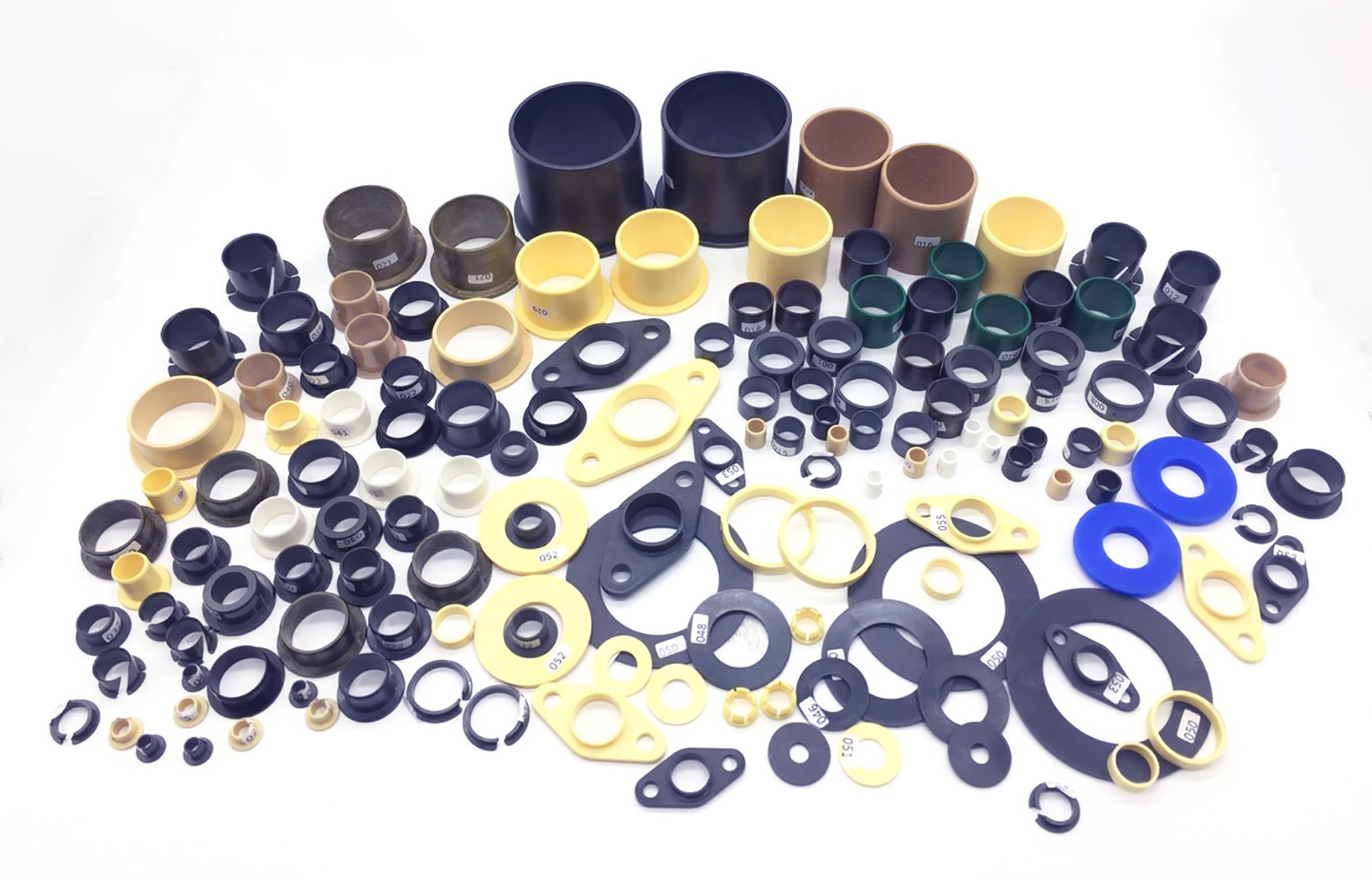
-
Seleilte? Flanged Sleeve Bearings
Seleilte? flange sleeve bearings are made of high-performance engineering plastics through complex processes with mechanical
stability and low friction coefficient.
Whether in dust or dirt, in a clean room or under water, they can be used to a large extent, which can largely replace existing metal
bearing applications and improve overall performance.
Application
Plastic bearings: construction machinery, machine tool equipment, textile industry, aerospace, glass industry, heavy machinery, plastic
machinery, model building, robot equipment, public transportation engineering, sheet metal forming processing, fitness and sports,
medical and life sciences.
Bearing Technology Material Property Sheet Sel T1 Sel M1 Sel Q1 Sel S1 Sel X1 Sel C1 Sel O1 Sel P1 Sel K1
Seleilte? The reason why the series of materials have outstanding self-lubricating and wear resistance is that engineers make full use of the self-lubricating material modification technology, and the use of high-strength fibers in high-performance engineering plastics improves the load-bearing of materials and special greases. The coefficient of friction, which improves the overall wear resistance of the material, extends the life of the bearing. The high-performance engineering plastics are mainly used as the wear-resistant carrier as the base material; the reinforcing fibers improve the bearing and impact resistance of the bearing; the special grease reduces the friction coefficient of the bearing and acts as a self-lubricating effect.
Seleilte? schematic diagram of internal structure of series materials
 Boby material
Fibre
Lubricant
Boby material
Fibre
Lubricant
Since the Seleilte? series of bearing greases are contained in the overall material, the grease will continuously ooze from the friction surface for long-term lubrication regardless of the working time of the bearing, while the traditional powder metallurgy oil-impregnated bearings utilize micro-pores during use. The lubricating oil acts as a self-lubricating agent. When these lubricating oils are exhausted or volatilized, the bearing wear will rapidly increase, and the effective service life of the bearing is declared.
Wear of plastic bearings and traditional composite bearings

Seleilte? plastic bearings have a long service life

The oil inside the traditional oil bearing is easy to exhaust and fail
Seleilte? The friction coefficient of a series of plain bearings is closely related to the load, running speed and surface roughness of the shaft material. The friction coefficient of the Seleilte? series of plain bearings increases with the increase of the running speed; it decreases with the increase of the load, which fully explains Seleilte? series plain bearings are suitable for high load and low speed applications; the smoother or rougher the shaft surface roughness will lead to an increase in the friction coefficient of the bearings. The surface roughness of the Seleilte? series bearings is Ra0.5 to Ra0. 8
| Seleilte? series | dry running | grease | oil | water |
| Coefficient of friction(μ) | 0.08~0.18 | 0.09 | 0.04 | 0.004 |



As long as any self-lubricating bearing is operated under load, the bearing will be slightly worn. The same is true for Seleilte? series bearings. During the start-up phase, when fine wear occurs, the grease will seep out and gradually fill the friction surface and transfer to the surface of the grinding shaft. When the working area of the grinding shaft is covered with grease, a layer is formed. A very thin lubricating diaphragm, at which the initial wear of the bearing is almost finished, and the wear rate of the bearing is greatly reduced and stable during long-term work.
The Seleilte? series of engineering plastic bearings are tested within the upper limit static load of 90Mpa. Under this load, the upper limit compression deformation of the bearing is referred to the chart. The actual upper limit load of the bearing must not exceed 80Mpa; the load will also be affected by the running speed and temperature, and the faster the speed ( Vmax: 1.0m/s) will cause the friction temperature to rise, while the temperature rise (Tmax: 130°C) will cause the bearing capacity of the bearing to gradually weaken, and the load will change with the bearing operating temperature.


The upper limit speed allowed for Seleilte? series bearings. These values are the upper limit speeds that are obtained when the bearing load is very small. These speeds are difficult to achieve in practice, because the bearings are inevitably subjected to the working load during operation, and the allowable running speed when the bearing load is increased Reduced. Since the speed of the bearing is inversely proportional to the operating temperature of the bearing, the upper limit speed allowed by the different operating modes of the bearing is also different.
Seleilte?
The upper limit of the Seleilte? series of engineering plastic bearings has a PV value of 0.5N/mm2*m/s; this determines that the load on the bearing is inversely proportional to the speed. Please refer to the chart for details.

In many cases, the bearing operation does not work continuously. Due to the short-term operation of the bearing (within 10 minutes of running time) and the upper limit allowable temperature is never reached, the allowable PV value of the bearing will increase because the bearing is generated by friction during the stop running time. The frictional heat is fully dissipated.
Although the Seleilte? series of plastic bearings are designed for dry friction applications, they have good compatibility with most lubricating media such as general greases; the addition of a lubricating medium during the start-up phase of the bearing improves the starting performance of the bearing and thus shortens the bearing. Run-in period. Moreover, the bearing capacity of the bearing in the presence of a lubricating medium is greatly improved, because the frictional heat generation value of the bearing is greatly reduced in the case of external lubrication intervention, and the bearing capacity is also improved after the bearing temperature is lowered.
Correction factor y2 of PV value in different lubrication modes| lubricating | Correction factor |
| dry running | 1 |
| grease lubrication | 2 |
| water lubrication | 4 |
| oil lubrication | 5 |
Test data on different shafts show that Seleilte? bearings perform well on carbon steel shafts and hard chrome shafts at low loads; as the bearing load increases, the shaft hardness requirements are higher; the soft shafts are more prone to wear. As a result, the bearing wear is also increased. When the bearing load exceeds 2 MPa, the wear of the bearing decreases as the shaft hardness increases. The following chart shows that the Seleilte? series performs better than the rotary motion in the oscillating motion, and the wear under the oscillating motion is less than the rotational motion under the same working conditions, especially at high loads.
Relationship between wear amount and material change of different shafts P=2MPa V=0.2m/s Relationship between wear and load and rotation under swing and swing operation P=2MPa V=0.2m/s
Relationship between wear and load and rotation under swing and swing operation P=2MPa V=0.2m/s

Sliding bearings are often exposed to a variety of harsh environments when used in outdoor equipment. UV resistance is an important indicator of the resistance of various bearing materials to UV rays.
Seleilte? series of plastic bearings are often used in applications where chemical media is in contact, where the chemical resistance of the bearings is particularly important. Since the chemical medium may cause changes in the structural composition of the bearing material, this change depends mainly on the type of chemical medium, temperature, exposure time, and the load and movement of the bearing. Sometimes the chemical medium acts as an effective lubricant and thus prolongs. The service life of the bearing.
Seleilte? series of plastic bearing series with tolerances :
Seleilte? series bearing tolerance| diameter mm | post-press tolerance E10 | mounting aperture H7 | matching shaft diameter H9 |
| >0 ~ 3 | +0.014 ~ +0.054 | 0 ~ + 0.010 | 0 ~ - 0.025 |
| >3 ~ 6 | +0.020 ~ +0.068 | 0 ~ +0.012 | 0 ~ -0.030 |
| >6 ~ 10 | +0.025 ~ +0.083 | 0 ~ +0.015 | 0 ~ -0.036 |
| >10 ~ 18 | +0.032 ~ +0.102 | 0 ~ +0.018 | 0 ~ -0.043 |
| >18 ~ 30 | +0.040 ~ +0.124 | 0 ~ +0.021 | 0 ~ -0.052 |
| >30 ~ 50 | +0.050 ~ +0.150 | 0 ~ +0.025 | 0 ~ -0.062 |
| >50 ~ 80 | +0.060 ~ +0.180 | 0 ~ +0.030 | 0 ~ -0.074 |
| >80 ~ 120 | +0.072 ~ +0.212 | 0 ~ +0.035 | 0 ~ -0.087 |
| >120 ~ 180 | +0.085 ~ +0.245 | 0 ~ +0.040 | 0 ~ -0.100 |
material property sheet
| Material Properties | Testing Method | Unit | T1 | M1 | Q1 | S1 | X1 | C1 | O1 | P1 | K1 |
| Conventional Performance | |||||||||||
| Specific gravity | ASTM D792 | g/cm3 | 1.46 | 1.49 | 1.14 | 1.24 | 1.44 | 1.58 | 1.52 | 1.36 | 1.5 |
| Color | dark gray | yellow | black | yellow | black | black | cream | black | beige | ||
| Dynamic friction/steel(dry) | μ | 0.08-0.15 | 0.06-0.18 | 0.18-0.40 | 0.08-0.23 | 0.09-0.27 | 0.06-0.21 | 0.06-0.21 | 0.1-0.24 | 0.08-0.19 | |
| Max.PV(dry) | N/mm2*m/s | 0.5 | 0.34 | 0.12 | 0.23 | 1.32 | 0.39 | 0.3 | 0.3 | 0.4 | |
| Max. rotating celocity(continuous) | M/s | 1 | 1.5 | 0.8 | 1 | 1.5 | 1 | 1 | 0.8 | 1 | |
| Max. rotating celocity(short-time) | M/s | 2 | 3 | 2 | 2.5 | 3.5 | 2 | 2 | 1 | 1.5 | |
| Max. oscillating celocity(continuous) | M/s | 0.7 | 1.1 | 0.6 | 0.7 | 1.1 | 0.7 | 0.7 | 0.6 | 0.7 | |
| Max. oscillating celocity(short-time) | M/s | 1.4 | 2.1 | 1.4 | 1.8 | 2.5 | 1.4 | 1.4 | 0.7 | 1.1 | |
| Max. linear celocity(continuous) | M/s | 4 | 8 | 2.5 | 4 | 5 | 3 | 3 | 2.5 | 2 | |
| Max. linear celocity(short-time) | M/s | 5 | 10 | 5 | 6 | 10 | 4 | 4 | 3 | 3 | |
| Moisture absorption RH50/23℃ | ASTM D570 | % | 0.7 | 0.3 | 1.4 | 1.3 | 0.1 | 0.2 | 0.1 | 1.3 | 0.7 |
| Max.water absorption,23℃ | % | 4 | 1.3 | 7.6 | 6.5 | 0.5 | 0.4 | 0.6 | 5.5 | 3.9 | |
| Mechanical Performance | |||||||||||
| E-modulus | ASTM D638 | MPa | 7800 | 2400 | 2700 | 3500 | 8100 | 5300 | 3500 | 7700 | 1950 |
| Tensile strength | ASTM D638 | MPa | 210 | 73 | 112 | 125 | 170 | 120 | 80 | 235 | 67 |
| Compressive strength | ASTM D790 | MPa | 78 | 60 | 52 | 61 | 100 | 66 | 60 | 74 | 47 |
| Max.static pressure of the surface,20℃ | MPa | 80 | 35 | 20 | 60 | 150 | 50 | 50 | 80 | 45 | |
| Shore hardness | ASTM D785 | D | 81 | 74 | 79 | 77 | 85 | 75 | 72 | 78 | 68 |
| Physical And Thermal Properties | |||||||||||
| work temperature(continuous) | °C | -40/+130 | -50/+90 | -40/+80 | -100/+250 | -100/+250 | -40/+130 | -40/+170 | -40/+100 | -40/+90 | |
| work temperatur(short-time)e | °C | -40/+220 | -50/+120 | -40/+170 | -100/+315 | -100/+315 | -40/+200 | -40/+240 | -40/+160 | -40/+180 | |
| Thermal conductivity | ASTM D5470 | W/m*k | 0.24 | 0.25 | 0.24 | 0.6 | 0.6 | 0.25 | 0.25 | 0.24 | 0.24 |
| Linear coef.of thermal expansion | ASTM D696 | K-1*10-5 | 9 | 10 | 10 | 5 | 5 | 4 | 3 | 17 | 10 |
| Conductive And Flame Retardant Properties | |||||||||||
| Volume resisitivity | Ωcm | >1013 | >1013 | >1013 | >1013 | <103 | >1013 | >1012 | >1011 | >101o | |
| Surface resistivity | Ωcm | >1011 | >1012 | >1011 | >1012 | <103 | >1012 | >1012 | >1011 | >1011 | |
| Flame retardance | UL94 | HB | HB | HB | HB | V0 | HB | ||||
+ MORE
-
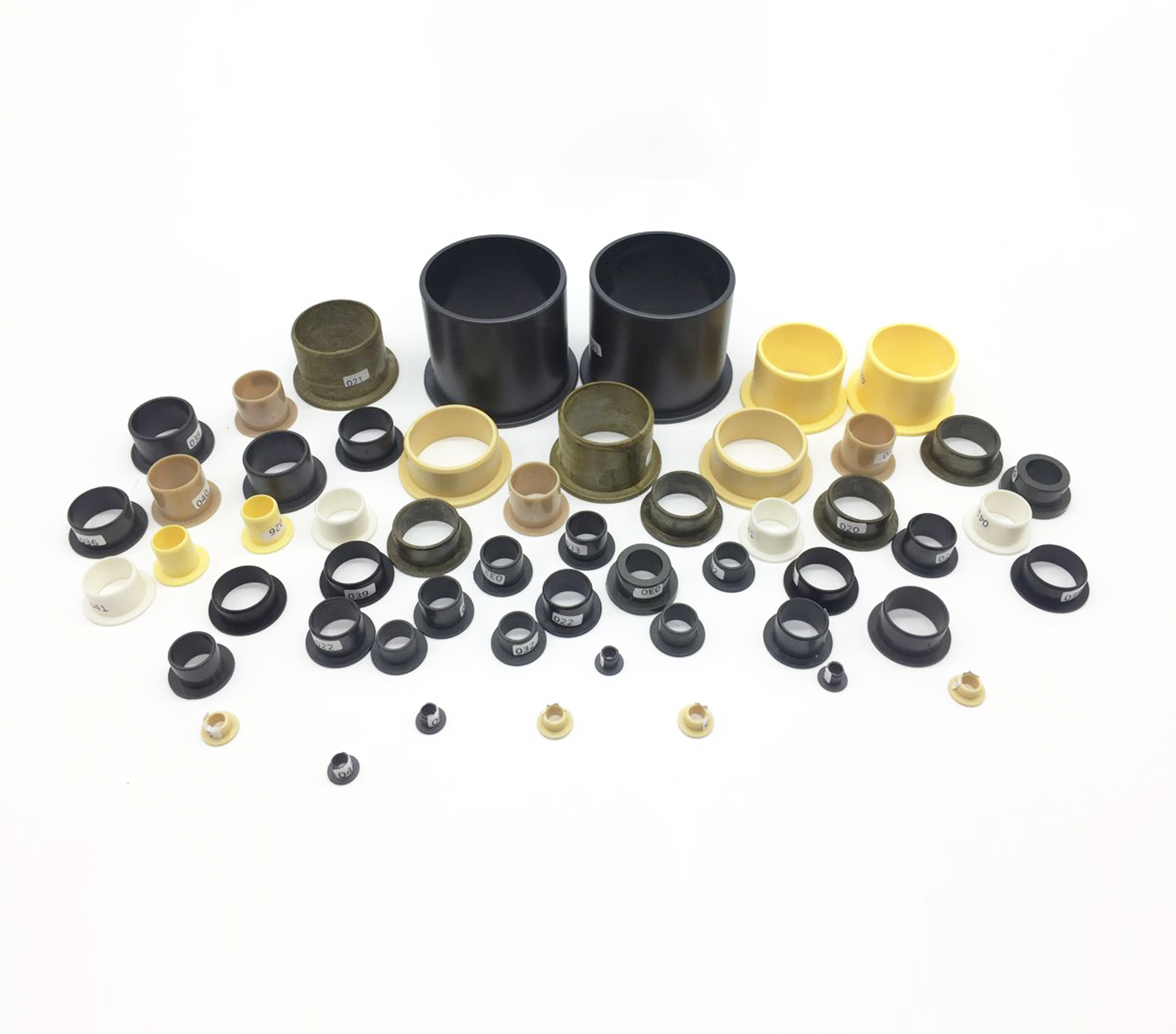
-
Seleilte? Flanged Sleeve Bearings
Seleilte? flanged sleeve bearings are manufactured in a complex process for high performance engineering plastics.
READ MORE >>
-
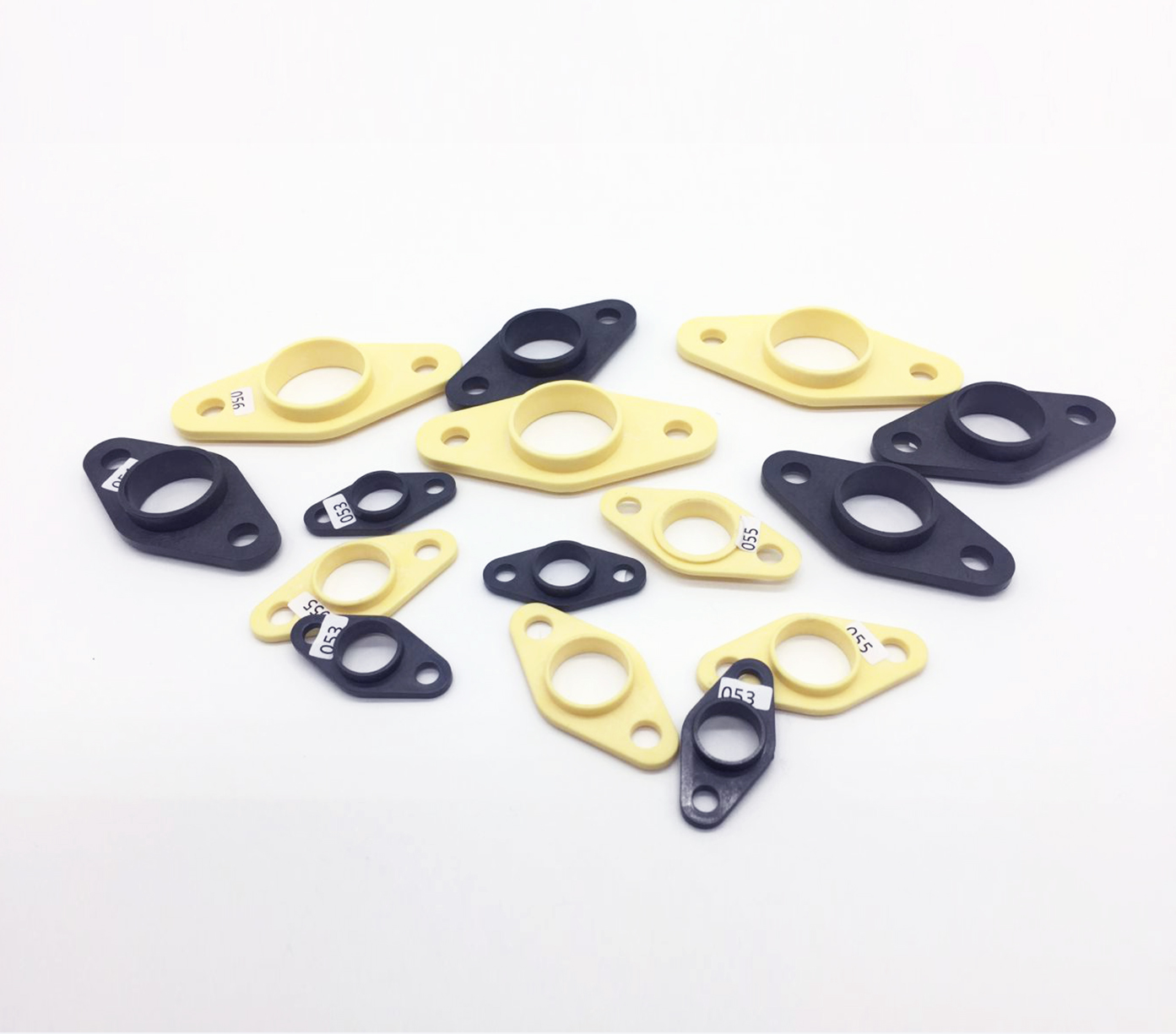
-
Seleilte? Flange Bearings
The highly wear-resistant engineering plastics have a series of plastic bearings with excellent performances such as wear-resisting.
READ MORE >>
-
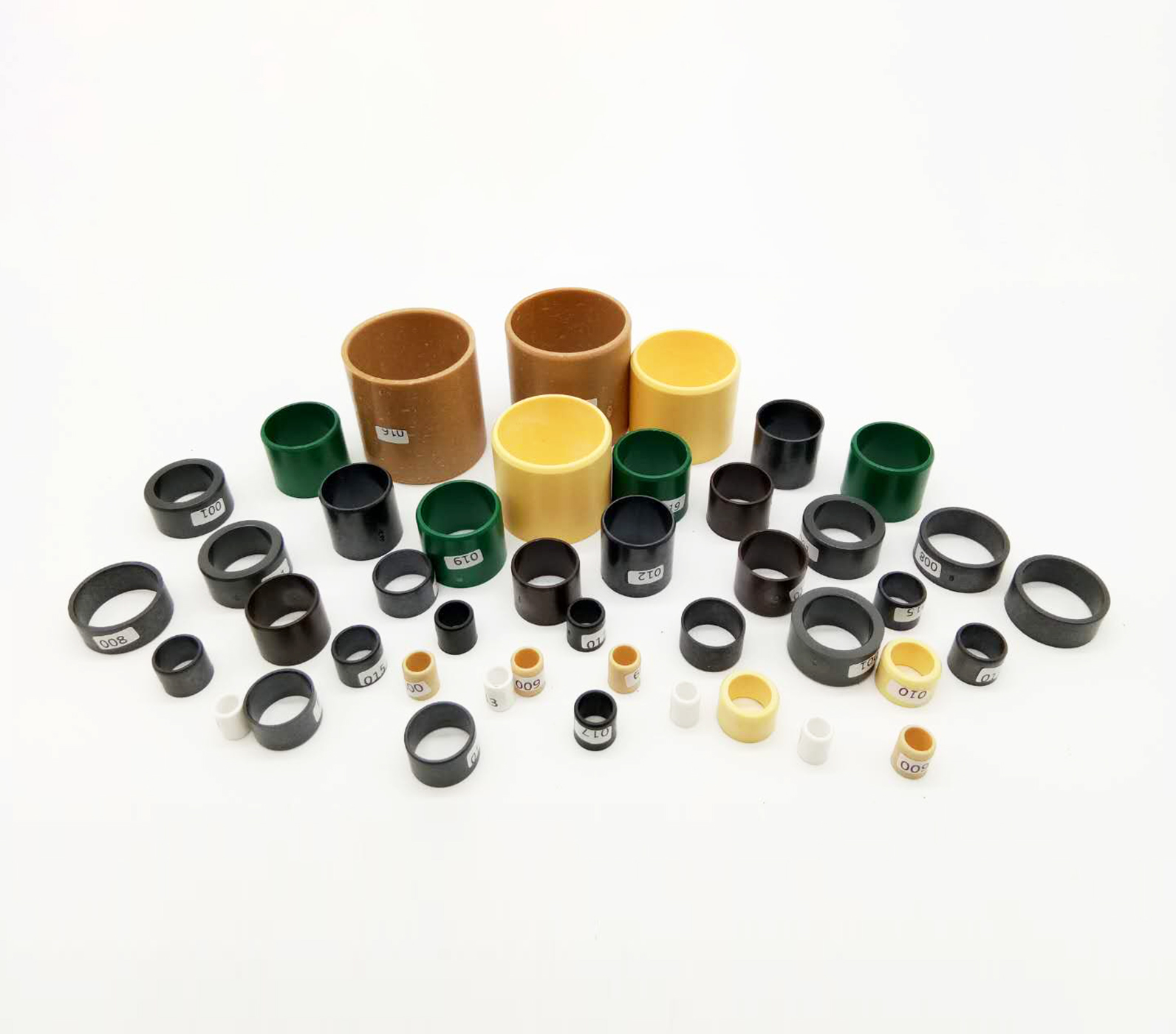
-
Seleilte? Sleeve Bearings
The seleilte? sleeve bearing is made of wear-resistant basic engineering plastics, fibers and fillers that are accurately combined to absorb high forces or loads.
READ MORE >>
-
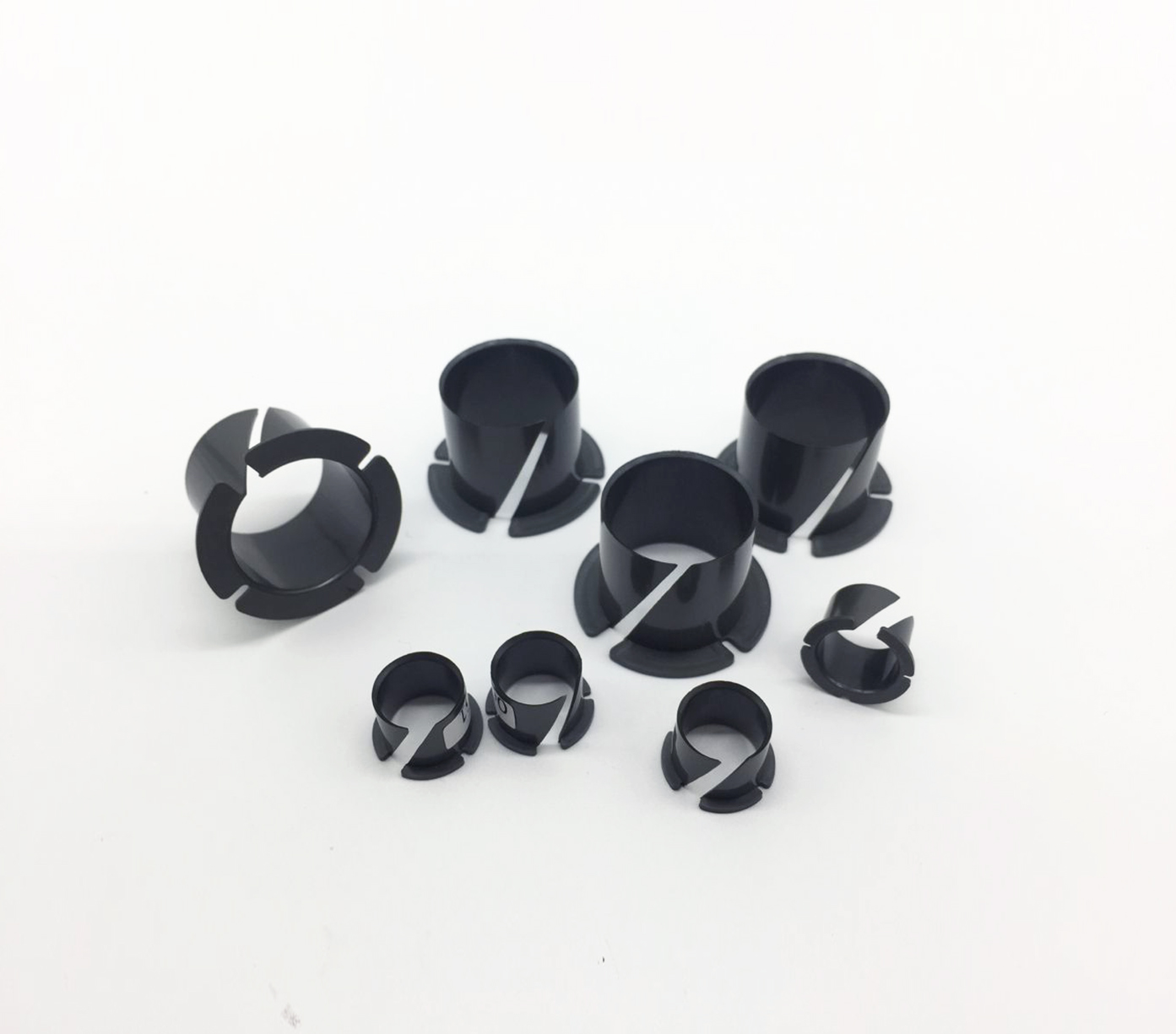
-
Seleilte? Clamp Bearings
The Seleilte? Clamp Series is a rugged, wear-resistant bearing for medium loads that is suitable for bushings that pass through sheet metal.
READ MORE >>
-
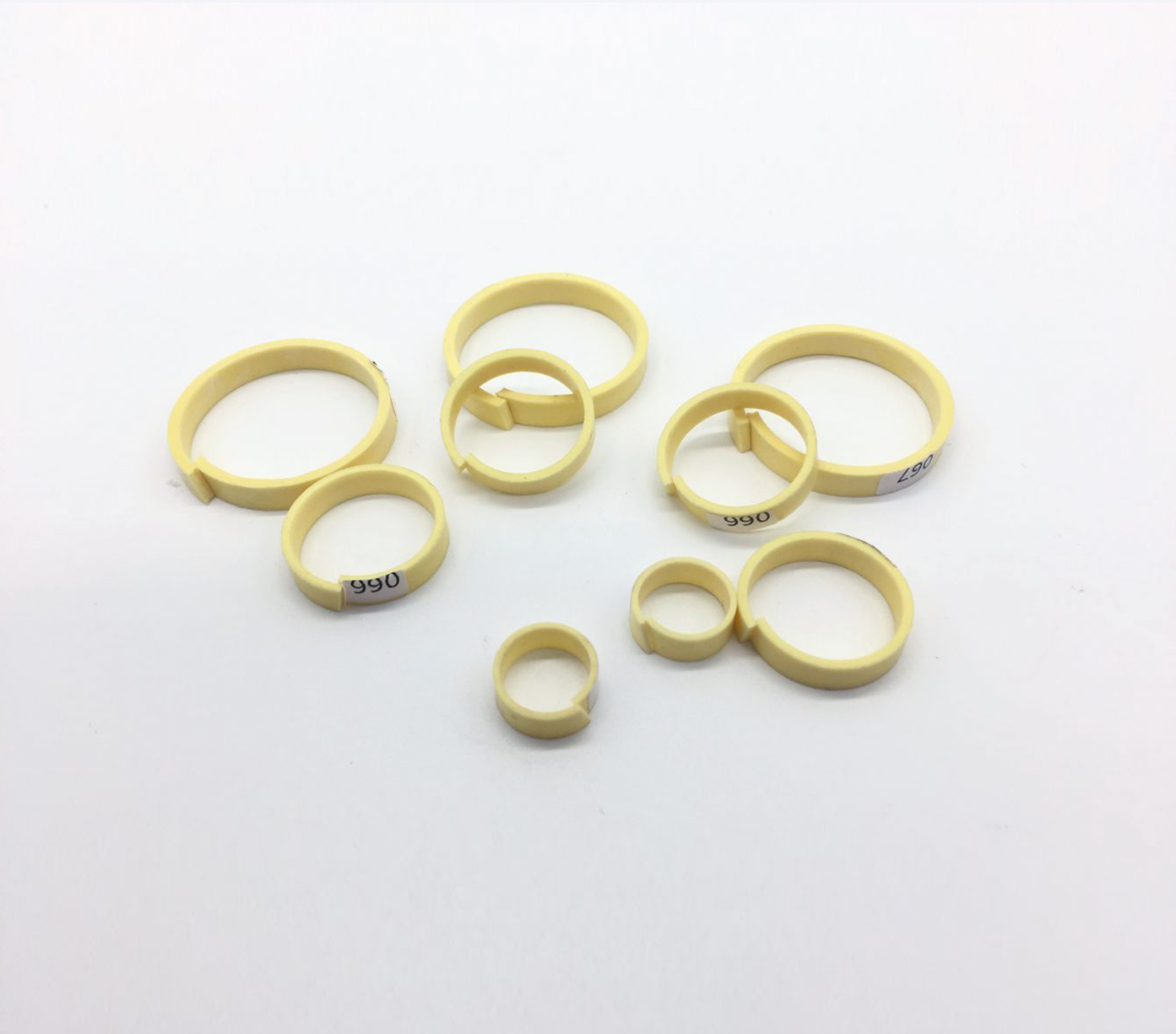
-
Seleilte? Piston Ring
The Seleilte? Piston Ring is a family of PTFE tapes that replaces the PTFE tape with only one clamp guide ring for lifting elements.
READ MORE >>
-

-
Seleilte? Thrust Washer
The Seleilte? thrust washers are modified by adding active ingredients to high-performance plastics to reduce costs and protect connectors.
READ MORE >>
